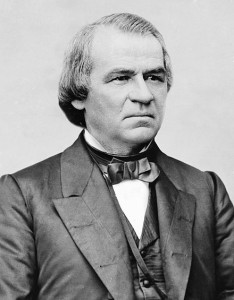John McCain Was elected to Congress in 1982 and elected to the Senate in 1986 taking the seat previously held by Barry Goldwater. In 1989, he was involved in the “Keating Five Scandal.
The five senators—Alan Cranston (Democrat of California), Dennis DeConcini (Democrat of Arizona), John Glenn (Democrat of Ohio), John McCain (Republican of Arizona), and Donald W. Riegle, Jr. (Democrat of Michigan)—were accused of improperly intervening in 1987 on behalf of Charles H. Keating, Jr., Chairman of the Lincoln Savings and Loan Association, which was the target of a regulatory investigation by the Federal Home Loan Bank Board (FHLBB). The FHLBB subsequently backed off taking action against Lincoln.
The late 1980s were the era of the Savings and Loan scandals.
The Federal Home Loan Bank Act of 1932 created the S&L system to promote homeownership for the working class. The S&Ls paid lower-than-average interest rates on deposits. In return, they offered lower-than-average mortgage rates. S&Ls couldn’t lend money for commercial real estate, business expansion, or education. They didn’t even provide checking accounts.
In 1934, Congress created the FSLIC to insure the S&L deposits. It provided the same protection that the Federal Deposit Insurance Corporation does for commercial banks. By 1980, the FSLIC insured 4,000 S&Ls with total assets of $604 billion. State-sponsored insurance programs insured 590 S&Ls with assets of $12.2 billion.
Inflation in the late 1970s and early 1980s led to pressure on Savings and Loan institutions that had been lending money at 6% to home buyers but savers were demanding higher interest rates to compensate for inflation. The S&Ls were caught in the “Borrow high and Lend low” vise that led to their demise.
My review of Nicole Gelinas’ book on the 2008 economic crisis includes some discussion of the 1986 problems.
The story of the 2008 collapse begins in 1984 with the rescue of the Continental Illinois Bank. Here began the “too big to fail” story. Two things happened here that led to the crisis. One was the decision to bail out all depositors, including those whose deposits exceeded the FDIC maximum. Secondly, the FDIC guaranteed the bond holders, as well. Thus began the problem of moral hazard. Another feature of this story was the role of Penn Square Bank, which had gone under two years earlier in the wake of the oil price collapse, which devastated many of its poorly collateralized loans in the oil industry. Both banks had been caught seeking higher returns through risky investments. Penn Square, however, had been allowed to collapse. Continental was rescued and that began a trend that the author lays out in detail through most of the rest of the book.
The 1986 crisis and the 1989 scandal affected McCain deeply. He was a freshman Senator and was probably included in the group for two reasons. First he was the only Republican and Second, Keating, a Phoenix developer, was a constituent. McCain was humiliated and his ego was as big as all outdoors.
His reaction to his humiliation was once of the worst pieces of legislation in the 20th century, The McCain-Feingold Act.
In 1995, Senators John McCain (R-AZ) and Russ Feingold (D-WI) jointly published an op-ed calling for campaign finance reform, and began working on their own bill. In 1998, the Senate voted on the bill, but the bill failed to meet the 60 vote threshold to defeat a filibuster. All 45 Senate Democrats and 6 Senate Republicans voted to invoke cloture, but the remaining 49 Republicans voted against invoking cloture. This effectively killed the bill for the remainder of the 105th Congress.
McCain, still in his “Maverick mode and still running on ego, persisted.
McCain’s 2000 campaign for president and a series of scandals (including the Enron scandal) brought the issue of campaign finance to the fore of public consciousness in 2001. McCain and Feingold pushed the bill in the Senate, while Chris Shays (R-CT) and Marty Meehan (D-MA) led the effort to pass the bill in the House. In just the second successful use of the discharge petition since the 1980s, a mixture of Democrats and Republicans defied Speaker Dennis Hastert and passed a campaign finance reform bill. The House approved the bill with a 240–189 vote, sending the bill to the Senate. The bill passed the Senate in a 60–40 vote, the bare minimum required to overcome the filibuster. Throughout the Congressional battle on the bill, President Bush declined to take a strong position, but Bush signed the law in March 2002 after it cleared both houses of Congress.
The results have been disastrous. Congressmen have spent most of their time “dialing for dollars,” as fundraising is referred to and staff members write legislation. The result is monster bills, like Obamacare and Dodd-Frank, that have devastated the economy and destroyed healthcare in this country. Now another consequence is developing. Congress members are quitting.
Only once since 1930 has the number of voluntary departures been higher than it was this cycle. Members choosing to walk away from the legislative branch include eight Republican committee chairs, as well as House Speaker Paul Ryan (R-WI), who became the second speaker in a row to voluntarily give up the gavel of the most powerful position in the House.
Interviews with more than half a dozen departing members and some recently retired members revealed three major drivers behind the surge of retirements: a legislative process dominated by party leaders, the constant pressure to raise money, and political dysfunction plaguing Congress from top to bottom. The picture painted by these departing Republicans and Democrats lays bare a disturbing reality: Congress is fast becoming a place that repels, rather than attracts, public servants who want to get things done.
Committee chairs are expected to raise more money even than regular members.
Rep. Thomas Massie (R-KY), who was first elected to Congress in 2012, has said that party leaders’ efforts to get him to pay his dues went so far as reminders being “stuffed in my pocket during votes” on the House floor.
Asked what happens when member don’t pay their party dues, retiring Rep. Jimmy Duncan (R-TN) bluntly said “You don’t get these chairmanships.”
Outgoing Rep. Lynn Jenkins (R-KS), likewise, acknowledged fundraising frustrations and even joked, “My mom had taught me not to talk a lot about myself and never ask strangers for money, and then, that’s all I’ve done for the last ten years.”
Many soon-to-be retirees also look forward to walking away from the hostile culture that pervades Capitol Hill.
The recent decision by the Supreme Court on “Citizens United vs FEC has brought the issue into focus.
The United States Supreme Court held (5–4) on January 21, 2010, that the free speech clause of the First Amendment to the Constitution prohibits the government from restricting independent expenditures for communications by nonprofit corporations, for-profit corporations, labor unions, and other associations.
In the case, the conservative non-profit organization Citizens United sought to air a film critical of Hillary Clinton and to advertise the film during television broadcasts shortly before the 2008 Democratic primary election in which Clinton was running for U.S. President.
Outrage by Democrats followed and Obama even berated the Supreme Court majority during his State of the Union speech.
On January 27, 2010, Obama further condemned the decision during the 2010 State of the Union Address, stating that, “Last week, the Supreme Court reversed a century of law to open the floodgates for special interests – including foreign corporations – to spend without limit in our elections.
The statement about “foreign corporations” is a lie. He should know better since his campaign in 2008 disabled credit card verification to allow foreign donations, which are illegal.
Ultimately, John McCain did what he could in person to get revenge on the voters when he killed Obamacare repeal with his vote in the Senate in spite of his promise in the 2016 campaign to vote for repeal.


